By Al Vrancart, Founder Emeritus and Industry Advisor, ICMA
The International Card Manufacturers Association (ICMA) serves the global card industry, which in 2016 manufactured an estimated 35.4 billion cards annually, deriving revenue of $19.8 billion, and personalized and fulfilled many of these cards for an additional service value of almost $7.6 billion for a combined card industry revenue value of $27.4 billion.
The card manufacturing industry is constantly evolving. Six of the industry’s 12 vertical markets offer the most opportunities and growth potential in 2017 and beyond. These trends will directly affect how card manufacturers and personalizers conduct business today and will shape the future of the card industry.
Consider these top six opportunity and growth trends:
Government/Health: This market segment has a diverse array of card applications, including national IDs, driver licenses, passport cards, social benefits and public and private health care cards. New card technologies, government imposed ID standards and security and fraud issues and concerns are driving growth in this segment. These cards are becoming more technologically sophisticated and expensive. Globally, card manufacturers produced 3.2 billion cards, with $3.2 billion revenue in this segment in 2016, exhibiting an 8.6 percent unit increase and a 17.1 percent revenue increase year-over-year (YOY), according to ICMA’s 2016 Global Market Statistics Report.
SIM: The ubiquitous mobile phone is a saturated market with more than 7 billion mobile phones and billions of other devices in use today. However, unit growth continues with the global conversion to smart phones and proliferation of other SIM-enabled devices. This market is driven by consumer demand for frequent phone upgrades to receive new phone features and designer handset styles. There is growth in most global regions and especially in the less developed countries where smart phones conveniently enable transactions by the large unbanked population. Also, declining chip prices have eroded SIM card prices. There were 5.4 billion SIM cards manufactured globally in 2016, creating $6.5 billion in revenue. There was a 2.2 percent unit increase and a 7.3 percent revenue decrease YOY, according to ICMA’s report.
Financial: This global market for secure financial cards, which includes debit, credit, prepaid and ATM, continues to experience moderate growth driven by EMV conversion, contactless and dual-interface technology, the shift to debit/prepaid, including open loop gift cards, rebranding from bank/issuer merger activity and stellar growth in the Asia Pacific region, particularly from India and China. The United States continues its massive launch of EMV chip cards. ICMA’s report estimates that in 2016 there were 5.5 billion secure financial cards manufactured globally, deriving $5.2 billion in revenue for card manufacturers, revealing a 2.8 percent unit increase and a 7.2 percent revenue increase YOY. The delay in launching other secure payment alternatives is fueling card growth, but will ultimately begin to impact growth in future years.
Transportation: A global trend continues of transit systems moving away from paper-based magnetic tickets to contactless smart cards. These cards are manufactured for the transit system and issued as closed loop cards for frequent users. There is also a trend of using contactless secure financial cards like Visa and MasterCard in an open loop system, particularly to meet the needs of infrequent users. There are also transit systems that now offer mobile payment applications that could impact future card growth. ICMA’s report estimates that globally there were 2.4 billion closed loop transportation cards manufactured in 2016, deriving $1.2 billion in revenue, amounting to an 8.3 percent unit increase and 13.2 percent revenue increase YOY.
Gift Cards: This market continues with moderate growth as closed loop gift cards become more sophisticated in design and have become a traditional mainstay item for the gift giving holiday season. North America and the U.K. have become mature saturated regional markets and are beginning to see some slight unit declines while Europe and Asia Pacific are now embracing gift cards with exceptional growth. ICMA’s report estimates that on a global basis there were 4.3 billion closed loop gift cards manufactured in 2016, representing $325 million in revenue for a 4.1 percent unit increase and a 0.9 percent revenue increase YOY. Virtual or digital gift cards are becoming more popular, particularly with millennials. However, they are not expected to dramatically curtail demand for plastic gift cards.
Access Control: This market segment has an array of applications, including cards for entry into secure or private areas like hotel rooms, employee entrances and gated communities. Increased market demand for more security is driving growth for contactless chip-enabled access control cards. There were 1.4 billion cards manufactured in 2016, creating $762 million in revenue for card manufacturers, representing an 8.6 percent unit increase and a 16.5 percent revenue increase YOY, according to ICMA’s latest reports.
If you require any additional information, visit the ICMA website at www.icma.com where members have free access to the complete ICMA Global Card Manufacturing Report and/or the ICMA Personalization and Fulfillment Report. Non-members can purchase global reports, which exhibit statistical and trend information for 12 vertical markets across five regional geographic markets, including North America, Europe, Asia Pacific, Latin America and the Middle East and Africa.
About the Author: Al Vrancart founded ICMA in 1990 and previously served as president/CEO of NBS and Qualteq. His guidance and counsel have helped ICMA and other industry associations implement effective and successful growth initiatives. A frequent presenter/speaker at card manufacturing industry events, he particularly focuses on both regional and global industry market statistics and metrics. He is ICMA’s founder emeritus and industry advisor.
